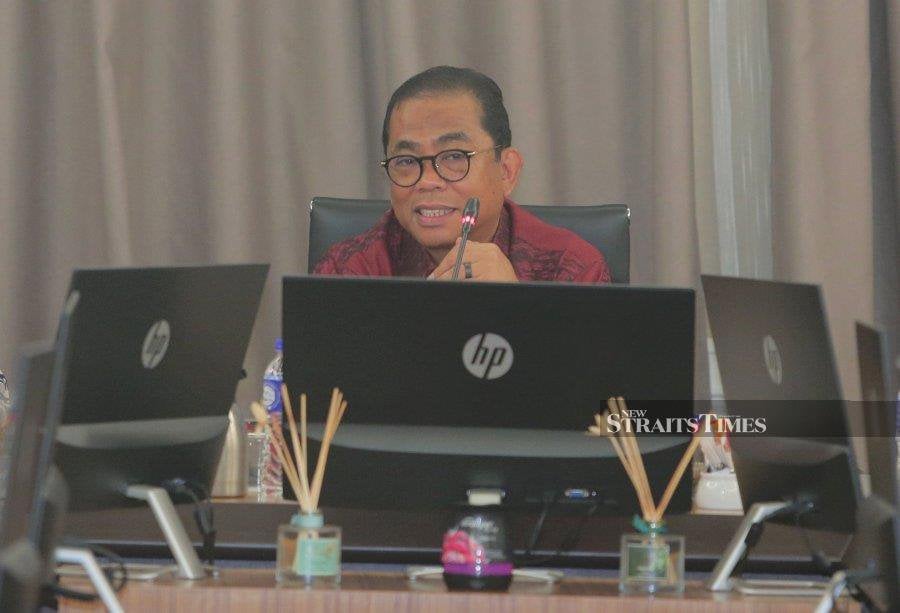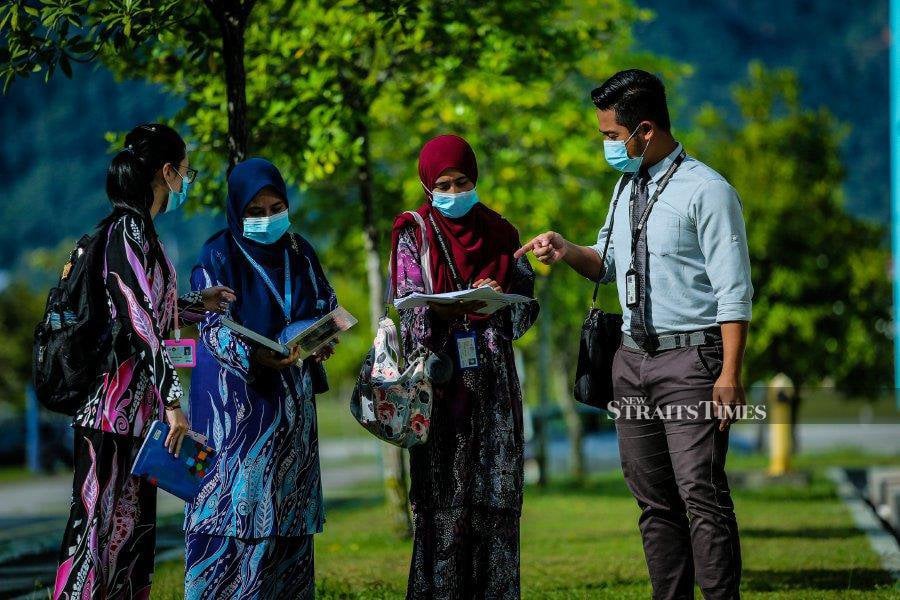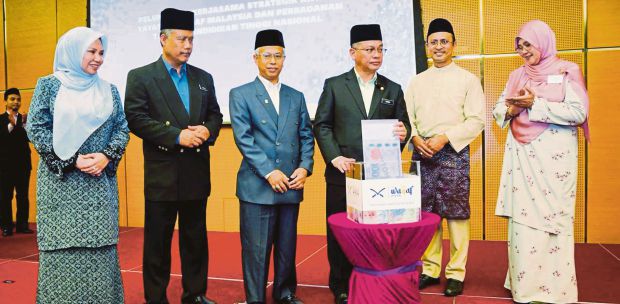MALAYSIA'S higher education system is entering a new phase of development. This is visibly echoed in the messages coming from the new-look Higher Education Ministry.
Its minister, Datuk Seri Khaled Nordin, is helming the ministry for the second time around.
As soon as he came in, he wasted no time in declaring that higher education has entered a new era of globalisation and competition. Plans introduced 10 years ago when he was the minister then have to be revised accordingly, taking cognisance of the changing times.
University education is witnessing structural changes in focus and delivery.
The two years of the Covid-19 pandemic have also contributed to the urgent need for adjustments in the operations of higher learning institutions.
Prior to the change in leadership at the ministry, efforts were already under way towards transformation.
The brief experience with online delivery during the pandemic has convinced many quarters that hybrid pedagogy truly offers value to teaching and learning, and needs to be strengthened.
Many local universities have, in fact, strengthened their information and communications technology platforms for more effective engagement between students and lecturers.
The higher education opportunities are also aggressively expanded to reach out to the workforce and assist them in upskilling themselves without leaving their jobs.
Concepts such as stackable microcredentials are introduced to make that possible. Even the quality assurance of higher education, now managed under the Malaysian Qualifications Agency, (MQA) has made great strides.
Universities that qualify can undertake their own self-accreditation of courses, following the guidelines introduced by MQA.
There is no doubt that the standard of higher education in Malaysia can rival the best in the world. We are ready to be more aggressive at the international level.
Previously, we only hosted international universities that established branch campuses here; now, our universities are doing the same overseas.
In the past, we saw the likes of universities from Australia, the United Kingdom and even China setting up shop here.
Last Friday, the higher education minister witnessed the soft launch of UCSI's new branch campus in Dhaka, Bangladesh.

In his address, Khaled was quick to declare that such an initiative heralds a new era of internationalisation for Malaysia's higher education business.
Internationalisation has always been in the blueprint of our higher education agenda.
What began with attracting international students to study here is now culminating in our universities expanding internationally.
Khaled has stressed that this is the way forward for the nation's universities. And he is committed to making more similar initiatives a reality. In fact, he states that his mission is to make Malaysian universities the international benchmark for global higher education.
In his 11 pillars of excellence, Khaled has also made special mention of improving the country's R&D, which is an important investment for the nation.
We should, therefore, be prudent in selecting the areas of R&D that we invest in such as those that generate optimal returns to the economy and sustainable wellbeing.
Khaled has said in no uncertain terms that the R&D must, at the end of the day, benefit society at large.
There are signs that the R&D landscape will undergo change. The minister has given a strong indication that funding for policy research is in the offing. This is timely because more R&D on policy formulation and implementation is needed to create a firmer footing for the country's development.
Khaled's many pronouncements to raise the profile of the higher education are seen as positive signs for the country as we continue to improve the quality of talent coming out of our universities.
Most higher education experts agree that if we continue on the new path of aggressive internationalisation and impactful research, it is no exaggeration to say that we will one day be recognised as among the top providers of higher education in the world.
That day is not very far away.
The writer is a professor at the Tan Sri Omar Centre for STI Policy, UCSI University





